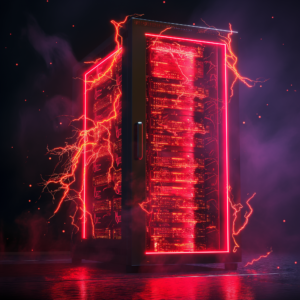
 Is there a real difference between dedicated servers and bare-metal servers? The cloud computing and hosting industries would certainly like you to think so. Google “dedicated server vs. bare-metal” and you’ll find a plethora of articles advising that there are small but important distinctions between each type of solution.
Is there a real difference between dedicated servers and bare-metal servers? The cloud computing and hosting industries would certainly like you to think so. Google “dedicated server vs. bare-metal” and you’ll find a plethora of articles advising that there are small but important distinctions between each type of solution.
But if you delve into the details, you’ll realize that the major difference between dedicated servers and bare metal boils down to marketing more than anything else. Although some vendors do use the terms to refer to distinct types of products, in many cases there are no real differences.
In the realm of cloud computing, a dedicated server, sometimes also termed as a dedicated host, refers to a single physical server that’s utilized by one client alone. This concept is a deviation from most cloud-based server instances as typically, cloud service providers split physical servers into virtual machines (VMs) and offer these VMs to a variety of customers.
It’s important to note, however, that in the case of a dedicated server, the entire capacity of a physical server is allotted to a single customer.
In the realm of the cloud, a bare-metal server is exactly what the name suggests: it’s a server instance that provides users with access to the raw, “bare metal” parts of the server. Users who opt for bare-metal servers thus aren’t sharing physical hardware with other users; the whole server is exclusively theirs.
If there’s a semblance between the above explanations of dedicated servers and bare-metal servers, that’s because there is. In application, the traits and functionalities of dedicated servers and bare-metal servers often closely correspond, and at times are exactly the same.
The term “bare-metal server” has evolved to represent more contemporary, adaptable solutions, while “dedicated server” is often related to more traditional physical cloud server options.
AWS provides “Dedicated Hosts” and “Dedicated Instances”. Both these options provide customers with a server solely dedicated to their use, but the Dedicated Hosts service offers a bit more control over the server environment.
There are vendors who provide “dedicated CPU“. The meaning of this term can differ but it generally means the VM instances that guarantee a certain amount of physical CPU resources to the VM, meaning customers don’t receive a full physical server dedicated to them, but just a portion of it.
“Dedicated” in this context could mean different products or configurations, which can lead to ambiguity and potential confusion.
It’s therefore incorrect to say that ‘dedicated servers’ and ‘bare-metal servers’ can be used interchangeably as they have different meanings in different contexts.
Generally, the differences between the terms ‘bare-metal’ and ‘dedicated server’ are more related to marketing objectives than actual discrepancies, despite the contrary notions cloud vendors might try to instill.
LowEndBox is a go-to resource for those seeking budget-friendly hosting solutions. This editorial focuses on syndicated news articles, delivering timely information and insights about web hosting, technology, and internet services that cater specifically to the LowEndBox community. With a wide range of topics covered, it serves as a comprehensive source of up-to-date content, helping users stay informed about the rapidly changing landscape of affordable hosting solutions.























It is unwise to read your article late. I’m curious what the situation would be like if we met faster. While we continue our conversation, can you please visit my vex website and leave yourself relaxed and entertained.